Happy May! We are doing something a little different this month and, like our blogpost in December about jazz, we are focusing on a specific discipline featured in our collection. This month we are highlighting our music education materials. We are excited to share that OISE Library is also highlighting their music education materials as well - be sure to stop by their display too! Read on to find new trends within music education research and the latest in pedagogical practice.
Social issues in music education
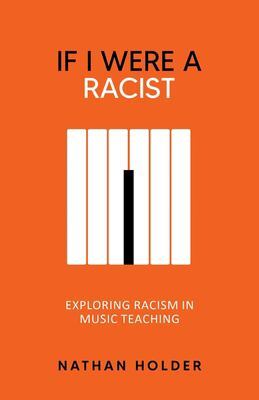
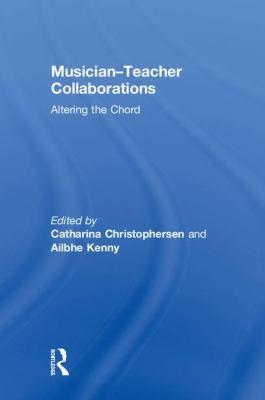
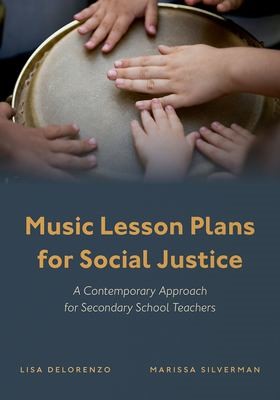
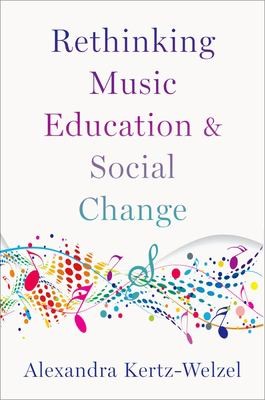
- If I were a racist: exploring racism in music teaching by Nathan Holder is a thought-provoking look at the history of racism in music education, and the way it continues to pervade contemporary music education. Recommended chapters “Classical music and the trans-Atlantic slave trade” and “White spaces.”
- Musician-teacher collaborations: altering the chord edited by Catharina Christophersen and Ailbhe Kenny is a series of essays from 11 countries investigating the dynamic between musicians and teachers in educational institutions. Recommended chapter: “Musicians as Musician-Teacher Collaborators: Towards Punk Pedagogical Perspectives.”
- Music lesson plans for social justice: a contemporary approach for secondary school teachers by Lisa C. DeLorenzo is a practical approach to developing lessons plans in social justice topics for secondary school. It includes ‘how-to’ guides and ready to go materials. Recommended chapter “Climate Change Unit.”
- Rethinking music education and social change by Alexandra Welzel-Kertz offers new frameworks to re-think music education for social transformation. Recommended chapter: “Music education and utopia.”
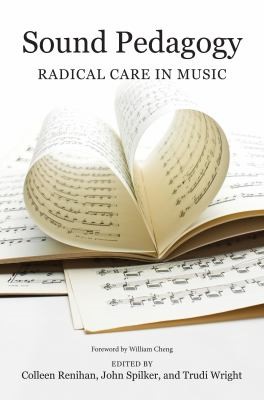
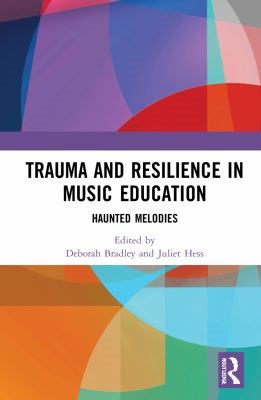
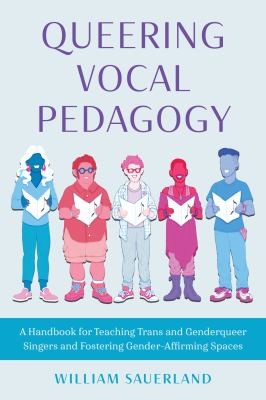
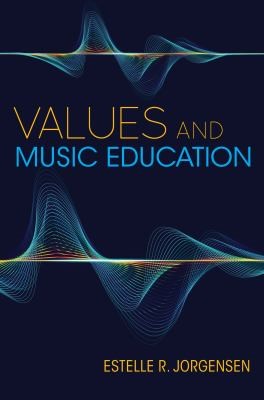
- Sound pedagogy: radical care in music edited by Colleen Renihan, John Spilker, and Trudi Wright argue for principles of kindness and care within music education, addressing obstacles experienced in higher education. Recommended chapter: “Integrating Well-being and Intersectional Equity across a Revised Music History and Culture Curriculum” by John Spilker.
- Trama and resilience in music education: haunted melodies edited by Deborah Bradley and Juliet Hess investigates the links between trauma and music, in both practice and theory. Recommended chapter: “Teaching through trauma: compassion fatigue, burnout, or secondary traumatic stress?” by Tawnya D. Smith
- Queering vocal pedagogy: a handbook for teaching trans and genderqueer singer and fostering gender-affirming spaces by William Sauerland features both real-life experience and practical knowledge for trans and genderqueer singers. Recommended chapter: “Pedagogical considerations for gender-affirming vocal music education.”
- Values and music education by Estelle R. Jorgensen offers nine sets of values for thinking about music education, through both constructive and critical thinking. Recommended chapter: “Justice, Equality, Fairness, and Inclusion.”
New trends in music education
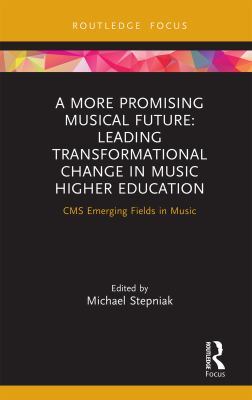
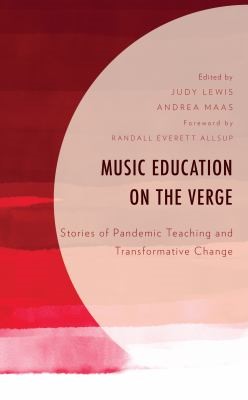
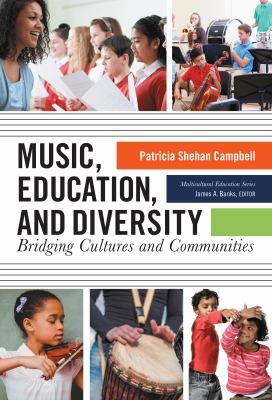
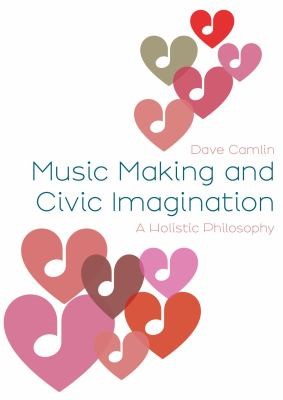
- Radically responsive music schools: Leading change through culture-building by Brian Pertl is a re-envisioning of music higher education from the ground up, positioning it as agile, collaborative, and socially aware. Recommended chapter: “A culture of belonging and collaboration.”
- A more promising musical future: leading transformational change in music higher education edited by Michael Stepniak provides steps for music faculty and administrators to lead change in their institutions. Recommended chapter: “Transforming community and ourselves through heart and mind work: a pathway for embracing diversity, inclusive, equity, belonging, and justice” by Jasmine D. Parker.
- Music education on the verge: stories of pandemic teaching and transformative change edited by Judy Lewis and Andrea Maas gives insights into pedagogical adaptations from the COVID-19 pandemic that hold lessons for musica education more broadly. Recommended chapter: “The playlist project: Exploring culturally responsive practices through online learning” by Tamara T. Thies.
- Music, education, and diversity: bridging cultures and communities by Patricia Shehan Campbell details how music can facilitate cultural understanding, at both the global and local scales. Recommended chapter: “Multicultural education and social justice in school music practice.”
- Music making and civic imagination: a holistic philosophy by Dave Camlin argues for music as a key part of human flourishing through presenting a holistic philosophy of music. Recommended chapter: “Musician education.”
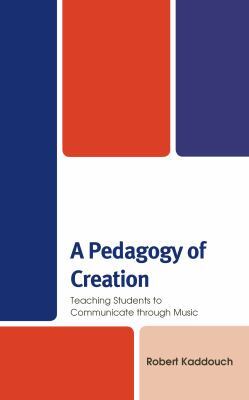
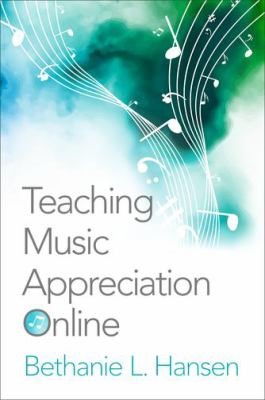
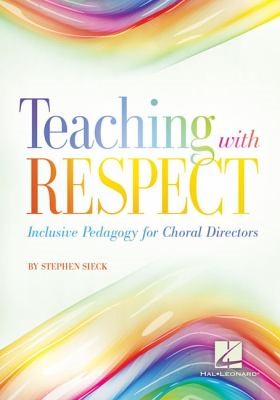
- A pedagogy of creation: teaching students to communicate through music by Robert Kaddouch offers a pedagogical approach whereby music is an act of communication, and students communicate through their music. Recommended chapter: “Teaching and creating.”
- Teaching music appreciation online by Bethanie L Hansen explores the growing field of online music education, with practical tips for navigating an online learning environment. Recommended chapter: “Philosophy and mindset for online education.”
- Teaching with respect: inclusive pedagogy for choral directors by Stephen Sieck encourages choral directors to centre respect in their pedagogical practice, prompting questions and strategies about the language used in the discipline. Recommended chapter: “Growing our perspective.”
Music education practice
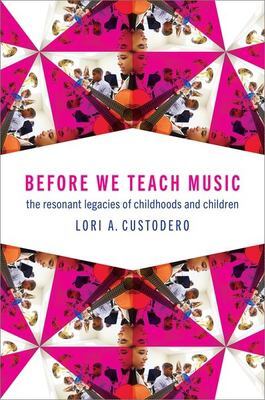
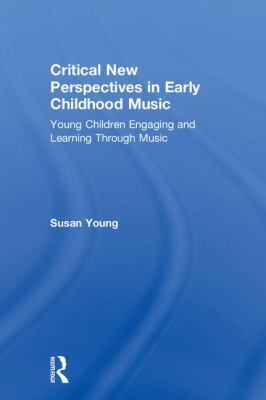
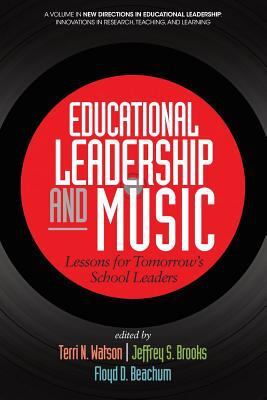
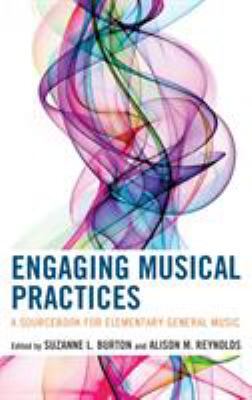
- Before we teach music: the resonant legacies of childhoods and children by Lori A. Custodero suggests that we can learn a lot about music education by studying childhood and children. Recommended chapter: “Encounters with children: lessons on mutuality and possibility.”
- Critical new perspectives on early childhood music: young children engaging and learning through music by Susan Young engages with how to best teach music for children based on how they learn and participate. It is filled with theoretical and empirical examples that illustrate contemporary childhood music education. Recommended chapter: “Karaoke kids and digi-tots: sociological perspectives.”
- Educational leadership and music: lessons for tomorrow’s school leaders edited by Terri N. Watson, Jeffrey S. Brooks, and Floyd D. Beachum draws on the experiences of artists or musical groups in order to expand or challenge educational leadership. Recommended chapter: “Leadership as jazz.”
- Engaging musical practices: a sourcebook for elementary general music edited by Suzanne L. Burton and Alison Reynolds is a fresh take on K-5 music education, filled with insights about pedagogical practice and useful resources. Recommended chapter: “Making informed technology choices for elementary general music classrooms.”
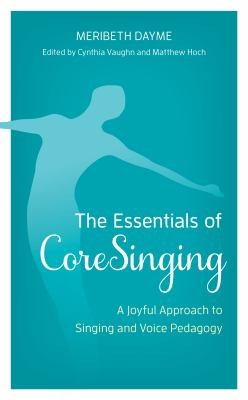
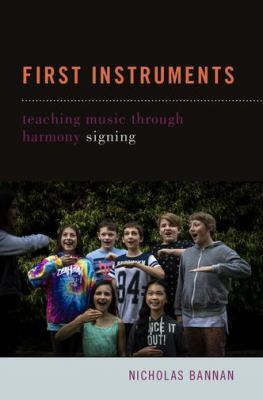
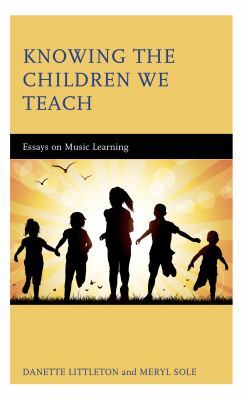

- The essentials of CoreSinging: a joyful approach to singing and voice pedagogy by Meribeth Bunch Dayme presents a unique approach to vocal pedagogy, including case studies from CoreSinging teachers. Recommended chapter: “A house with four rooms” by Elizabeth Blades.
- First instruments: teaching music through harmony singing by Nicholas Bannan is a guide for teaching elementary school students and building a lifelong commitment to music-making. Recommended chapter: Building creatively on harmony singing.”
- Knowing the children we teach: essays on music learning by Danette Littleton argues that music has an important place in children’s well-being. Recommended chapter: “Wonder-filled knowing and learning.”
- More than music lessons: a studio teacher’s guide to parents, practicing, projects, and character by Merlin B. Thompson bring student-centred teaching to life with tips and strategies for music studio teachers. Recommended chapter: “Giving voice to students.”
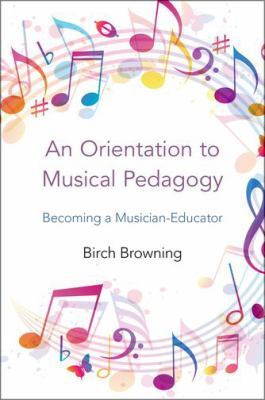
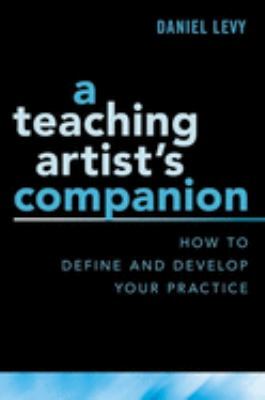
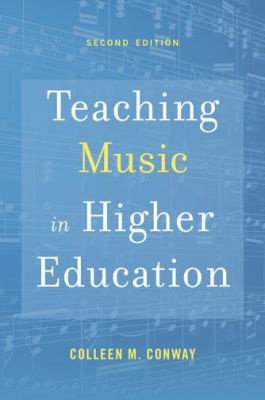
- An orientation to musical pedagogy: becoming a musician-educator by Birch Browning assists new music educators in transitioning from students to professionals. Recommended chapter: “Designing meaningful instruction.”
- A teaching artist’s companion: how to define and develop your practice by Daniel Levy offers a teaching framework of View, Design, and Respond, to situate teaching music. Containing worksheets and resources, this is for both veteran and new music teachers to develop their practice. Recommended chapter: “Four view, design, and respond based arts-in-education programs.
- Teaching music in higher education by Colleen Marie Conway focuses on ‘learner-centered pedagogy’ or basing instruction on individual students’ needs. Recommended chapters: “Understanding the learners: identities in inclusive classrooms” and “Strategies for active learning in music classrooms.”
Research and theories
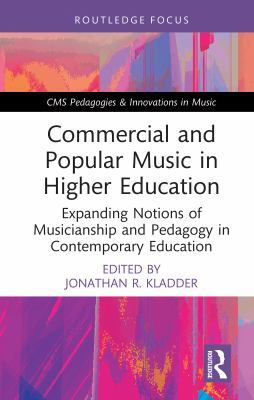
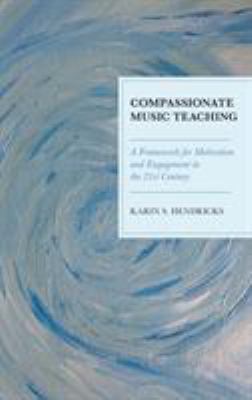
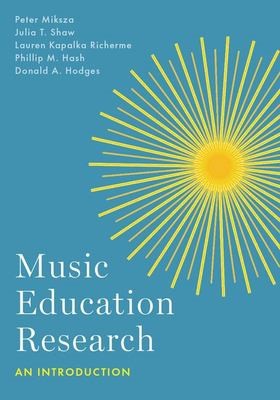
- Commercial and popular music in higher education: expanding notions of musicianship and pedagogy in contemporary education by Jonathan R. Kladder explores how popular music can be brought into teaching in post-secondary institutions, and how this can enhance students' learning. Recommended chapter: “Have no fear, Hip-Hop is here!: Creating place and space for hip-hop in higher education” by Thomas E. Taylor.
- Compassionate music teaching: a framework for motivation and engagement in the 21st century by Karin S. Hendricks includes research, personal insights, and case studies for teaching music with principles of compassion, in order to reach a diverse student base. Recommended chapters: “Inclusion” and “Community.”
- Music education research: an introduction by Peter Miksza, Julia T. Shaw, Lauren Kapalka Richerme, Phillip M. Hash, and Donald A. Hodges is a starting place for those new to music education research. It offers overviews of all types of research methods, as well as tips from every stage of the research process. Recommended chapter: “The role of research in music education.”
- Music in schools: From the Middle Ages to the Modern Age edited by Paola Dessì traces music education across place and history and the role that music has played in the broader landscape of teaching and learning. Recommended chapter: “Docere and discrere: a multidisciplinary approach to music in schools.”
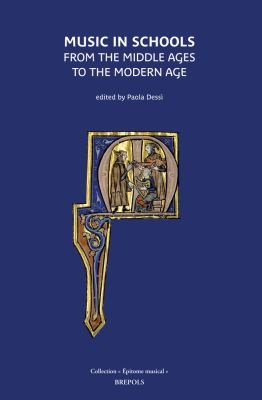
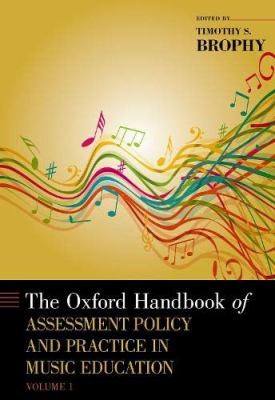
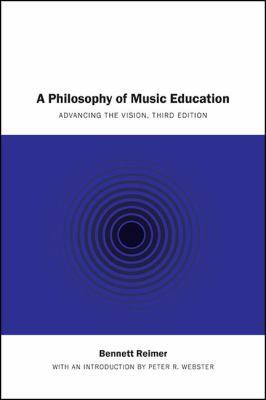
- The Oxford handbook of assessment policy and practice in music education edited by Timothy S. Brophy a compilation from 53 leading experts from around the world, reviewing assessment related to legislation, student learning, and technology for music education. Recommended chapter: “Assessing music learning with technology” by William I. Bauer.
- A philosophy of music education: advancing the vision by Bennett Reimer is a new edition with updates to the 1970 publication, offering a philosophy for music education, with case studies and questions for discussion. Recommended chapter: “The creating dimension of musical experience.”
- Revolutions in music education: historical and social explorations edited by Andrew Sutherland, Jane Southcott, and Leon de Bruin chronicles major changes of music education throughout time that shape teaching practice today. Recommended chapter: “Progressing Multicultural Music Education from Colonialism, Othering, and Tokenism” by Andrew Sutherland.
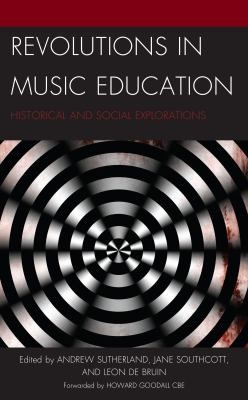
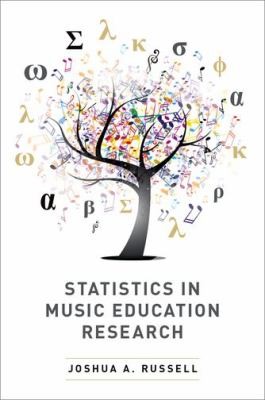
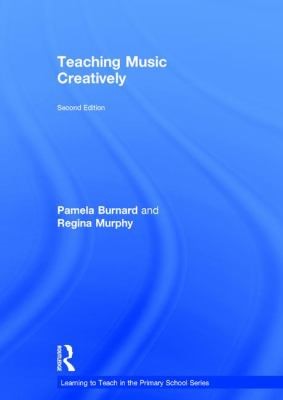
- Statistics in music education research: a reference for researchers, teachers, and students by Joshua A. Russell gives practical tips for using statistics in music education, for instructors and students alike. Recommended chapter: “Fundamental principles.”
- Teaching music creatively by Pamela Burnard centers creativity in music curriculum, by offering tested strategies and innovative programming ideas. Recommended chapter: “Assessing creatively.”
- The tyranny of tradition in piano teaching: a critical history from Clementi to the present by Walter Ponce critically examines the history of piano teaching and encourages instructors to re-think past practice. Recommended chapter: “Rituals and myths.”
Music education and place
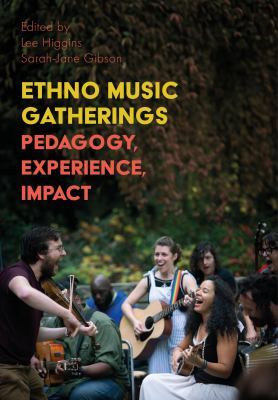
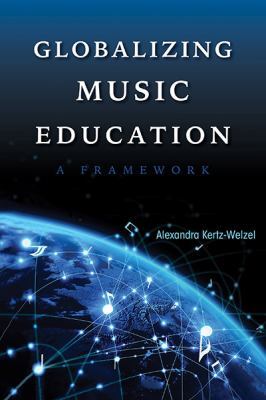
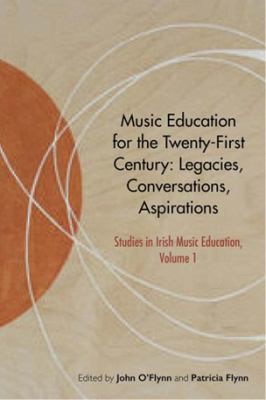
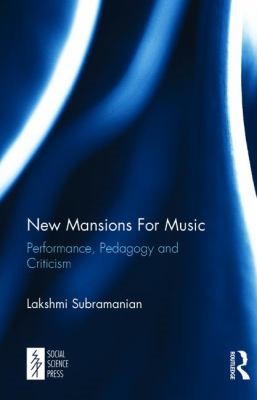
- Ethno music gatherings: pedagogy, experience, impact edited by Lee Higgins and Sarah-Jane Gibson details Ethno, a music programme for young people located in over 40 countries, has impacted those who have attended and its relevance for pedagogy. Recommended chapter: “Music making as holistic praxis” by Dave Camlin and Helena Reis.
- Globalizing music education: a framework by Alexandra Kertz-Welzel uses an interdisciplinary approach to highlight how a global mindset can transform music education. Recommended chapter: “Thinking globally in music education research.”
- Music education for the twenty-first century: legacies, conversations, aspirations edited by John O’Flynn and Patrcia Flynn centres on music education practices in Ireland, highlighting their strengths and challenges. Recommended chapter: “The creative muddle of music education” by Keither Swanwick.
- New mansions for music: performance, pedagogy, and criticism by Lakshmi Subramanian looks at the Karnatik music system in India, and how it has been transformed by modernization. Recommended chapter: “From the Gurukula to the University: Initiatives in Music Education.”
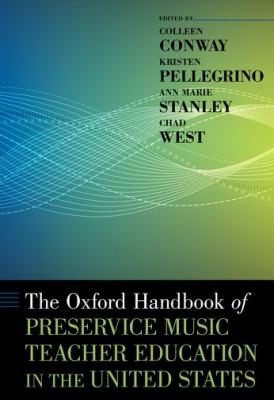
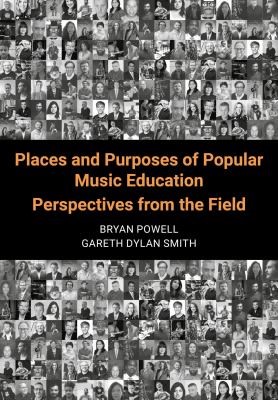
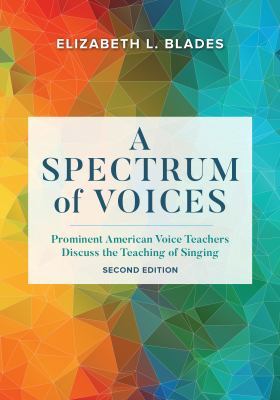
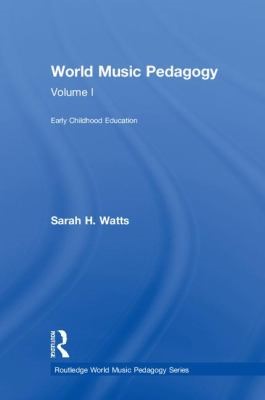
- The Oxford handbook of preservice music teacher education in the United States edited by Colleen Conway, Kristen Pellegrino, Ann Marie Stanley, and Chad West argues, from 56 contributors, that music education only benefits all students if educators are using diverse learning strategies in the classroom. Identifies opportunities to challenge existing pedagogical boundaries. Recommended chapter: “Reconsidering elementary general music methods: deconstructing our decisions.”
- The Transformative Politics of Music Education by Tuulikki Laes, Gert Biesta, and Heidi Westerlund offers a unique approach to music education which links it to politics – with an emphasis on Europe. Recommended chapter: “The paradox of social innovations within music schools: Taking critical responsibility in transformative practice.”
- Places and purposes of popular music education: perspectives from the field edited by Bryan Powell and Gareth Dylan Smith feature international perspectives on popular music education topics. Recommended chapter: “Decolonizing higher music education: Person versus persona” by Adriel E Miles.
- A spectrum of voices: prominent American voice teachers discuss the teaching of singing by Elizabeth L. Blades includes interviews with 25 notable vocal teachers, offering insights into pedagogical practice and lessons structure. Recommended chapter: “Training singers practical artistic and professional development.”
- World music pedagogy by Sarah H. Watts, Christopher J. Roberts, and Amy C. Beegle is a tool to think globally about middle and high school music classrooms – asking how we should discuss multicultural music education and prompts for self-reflection for educators. Recommended chapter: “Learning through engaged listening.”
Blog category